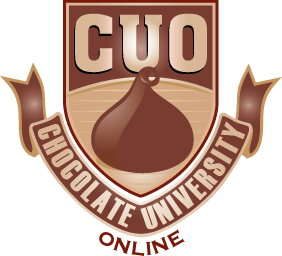Chocolate For Brighter Snails
You may have heard about rumors and talks about foods that are designed to enhance brain functions. These have taken many people by storm. If you try typing word “superfood” and search for it online, you will stumble upon diverse websites that are dedicated to this topic.
The curiosity of the researchers from the University of Calgary was tweaked by how some dietary factors can really have an effect on memory, it could be enhanced or impaired. At first, Ken Lukowiak was kind of skeptical towards this matter. He said, ”I didn’t think any of this stuff would work.”
In spite of all the skepticism, Lukowiak worked with undergraduate Lee Fruson to focus on a certain group of compounds called flavonoids. They are found in a wide variety of foods that are considered to be “superfoods”, green tea and chocolate included.
The researchers though it would be hard to single out a single food component and study the diverse impact it could have on human memory. There are so many factors included in the process of memory formation. Rather, they experimented with snails to find out whether the flavonoids that are found in dark chocolates could actually be used to improve their memories.
Then, the researchers have found out these mollusks have the capacity to be trained and be adept with a simple activity. In such case, to be able to keep their breathing tubes closed when they are subjected and immersed in deoxygenated water.
Lukowiak said that pond snails have the ability to breathe through the skin, but when oxygen levels start dwindling, they extend their breathing tubes above the surface of the water son to augment their oxygen supply.
They then worked with epicatechin, a flavonoid compound. They first had to find a concentration that did not have any impact on the snails’ behavior.
They gave the snails 30-minute training session in deoxygenated water. It may sound hilarious, but this lets the snails form intermediate-term memories that usually last less than 3 hours. This is not enough for long-term memories that would exceed 24 hours.
Thus, when the snails were put in deoxygenated water a day later, they remembered to keep their breathing tubes closed. Further experimentation allowed the memories to be intact for up to 3 days.
Categories: chocolate articles Tags: chocolate research, find, flavonoids, found, snails
The Difference Between Dutch-process and Natural Cocoa Powder
Dutch-process cocoa powder is actually derived from cacao beans that have undergone washing with a potassium solution. This is in order to neutralize their acidity. Natural cocoa powder is made out of cocoa beans that have simply undergone roasting, and then got pulverized into fine powder.
Apart from having the acidity neutralized, Dutching cocoa powder will actually make it darker and it tends to mellow the beans’ flavor. Many of the artisan manufacturers you will find in American don’t Dutch-process the cocoa that they have. They claim that their beans need not be acid-neutralized. Majority of supermarket brands of cocoa powder you can find in the United States, like Nestlé and Hershey’s, are natural cocoa powders.
Given than natural cocoa powder has not undergone tempering of acidity, it typically goes hand in hand with baking soda (which is alkali) in recipes. Chocolate makers typically mix Dutch-process cocoa with baking powder, since it does not react to baking soda like natural cocoa does. A lot of classic American recipes, such as Devil’s Food Cake, make use of natural cocoa powder. The reddish crumb in this recipe is the reaction between baking soda and natural cocoa powder.
But of course, there are exceptions to each. According to Fine Cooking magazine, “You can substitute natural cocoa powder for Dutch-process in most recipes (though not vice versa). Flavor and texture can be affected, but generally only in recipes calling for 3/4 cup (75 g) or more.”
You must know that you can’t use Dutch-process cocoa when a recipe specifically requires natural cocoa powder. When making ice creams and sauces, though, they can be swapped out. However, it cannot be applied when making cookies and cakes.
If a recipe requires either, the main difference that you will see is that Dutch-process cocoa yields a darker color and a more complex flavor , while natural cocoa powder is fruitier tasting and lighter in color.
Categories: chocolate articles Tags: cocoa, cocoa powder, find, making
Where can I find cocoa butter for chocolate making?
Question by Lillybell: Where can I find cocoa butter for chocolate making?
I’m taking a chocolate making course, and it calls for cocoa butter for the enrobing part (like dipping). It said cocoa butter was made from the fat part of the cocoa bean, or something, and is expensive, but I can’t find anywhere that sells it.
Best answer:
Answer by pinkribbon
Assuming you are in the UK, you could e-mail somebody like Pembertons (see link) and see if they can either sell you some or let you know who their supplier is.
http://www.welshchocolatefarm.com/contact/
Add your own answer in the comments!




